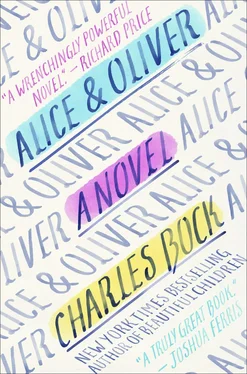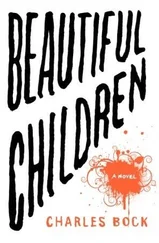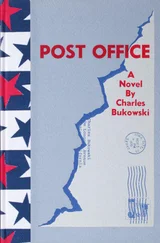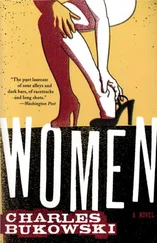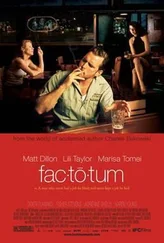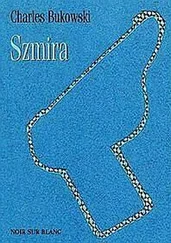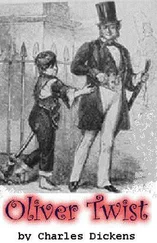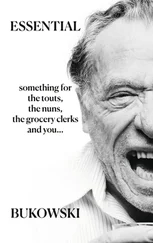Still, if he hadn’t said anything in return, he also didn’t need to be told that no man could deny the woman he loved a baby.
—
Oliver hadn’t wanted for anything: sneakers, ten-speed, home computer when he was thirteen, money for tickets to concerts in Sacramento, you name it — but through every suburban moment, he also understood that his bounty came from his old man’s toil: six days a week, ten hours a day, pounding dents out of junkers, pickups, and off-road racers. His shop was called the Dent Doctor. Each morning the hulking slab would muss Oliver’s hair at the breakfast table, scarf down eggs and sausage and provide a solid half hour of banter, then kiss Oliver’s mom on the cheek and head off to swing his arsenal of sledgehammers. After sundown, his body dragging and smelling faintly of rye, the Doc would gather enough enthusiasm to enter the house with a hearty hey hey. He’d ask about Oliver’s day at school, check that all homework had been completed, maybe shovel down whatever his wife had cobbled together for dinner. Then the Doc would disappear for a long soak. Later on, he might lumber in and read a bedtime story, ask if the kid wanted to sit next to him on the couch and watch the Giants for a few innings.
When Oliver had grown to where the Doc wasn’t quite able to follow his math and chemistry assignments, the old man had nonetheless remained shrewd enough to understand grading marks, so that when ninth-grade Oliver phoned in one too many assignments, his dad noticed. Taking Oliver’s hand in one of his hard, callused lumps, he’d pulled the boy close. Face red, breath hot and sour with whiskey, Dad insisted: Don’t you know? I’m doing this so you won’t have to.
Oliver had assumed it would be a variant of how he was raised, with Alice the primary caregiver, handling all the heavy lifting: the mommy. The kid in classes most of the day, running around to after-school activities and whatnot. Just like his dad, Oliver would muss hair and do the breakfast table thing. He’d show up for school plays, talk with teachers on parents’ night, and sweep in late for bedtime stories, the occasional heart-to-heart.
Tragedy didn’t follow any spreadsheets, did it? Tragedy had its own business plan.
—
Just this one time, he told himself. Get it out of my system.
According to lore, the street letter succession stood for All right, Beware, Check yourself, Dead, and it was well accepted that any visitor to Alphabet City was either looking for trouble or finding it. The Department of Transportation had long waved the white flag; they no longer fixed the streets out here, so sidewalks had gone uneven, thick roots pushing up, cracking and crumbling the cement. A bank of dirty curb snow still remained, thinning the walking path from the edges, plastic bags and soda containers and glass shards sticking out from the gray piles like remnants of some ancient civilization. At the same time, thin white magnolia trees had started sprouting. Oliver headed beneath the pink saucer buds, suspended and dazzling in the branches; past the abandoned storefront, its boarded picture window defaced by urban kudzu: layers of illegible graffiti scrawls, wheat-pasted posters for long-gone concerts.
Nearing the bank of pay phones, he heard whispered chants for that week’s product: body bag body bag. Keeping his back to the corner homies, Oliver approached yet another bank of phone stalls. Just one possessed its receiver. Occupied, of course, this time by a robust turnip of a woman. Don’t give me none of that, Julio, she harangued, pausing long enough to shoot a look, convey her intention to stay on the phone for the indefinite future.
Oliver kept his head down, and was past the phone bank when the laughter of the corner boys broke out, some joke that had to be at his expense. Overhead the sky was perfect and crystalline and darkening along its edges. The large building on the corner had been burnt out, and Oliver lingered, staring at its hull, every now and then checking back on the phone. A colorful handful of squatters was busy along the building’s husk — one older guy violent in his adjustments of a roof antenna, two college-age women looking peaceful as they aired out a faded white cloth, the parachute sheet opening in slow motion, falling.
Oliver removed the lemon-yellow card. On the back he’d written these cross streets.
Below the curb ran the gutter river: runoff slush, three floating crack vials. Half-submerged, a needle casing bobbed.
—
One of the Jacksons from his wallet got rid of the turnip— okay then, fool, DAMN— and soon Oliver was spitting his gum onto the curb and feeling his pulse in his ears and waiting for the other end to pick up. He was giving his first name and apologizing for running late. He was breathless with anticipation, wrung out. A police siren was disappearing into the distance.
It took five minutes to find the given address, a pale yellow brownstone that had seen better days, iron bars crossing even its highest row of windows. The building buzzer must have malfunctioned and gotten stuck, because it didn’t stop sounding until long after he was inside. No lights in the crumbling lobby, just a handwritten wall note offering a sign-up list, which apartments needed visits next month from the exterminator. Oliver descended to the basement apartment, but did not have to knock. The door was already ajar.
From out behind its crook, a head tilted. Dyed auburn locks obscured her face, though her smile had a hint of mischief. “Hey there.”
Reaching, she took his hand and led him inside. It was as if he had passed over some sort of threshold. They entered a small, dark living room, where what little light existed was provided by a series of small, scented candles. His guide was short but not deal-breaker short. She wore only a faded tee, and it took Oliver a little effort to read the name on it, some obscure experimental theater group. He couldn’t keep from looking down to her thighs: pale and luminous, their skin capturing and holding the flickering candlelight. Oliver admired their smoothness, their plumpness, full hips and roundness rustling against the bottom of that shirt.
Without warning she stopped, faced him, and grabbed his belt. Oliver’s every nerve went electric. He had no idea what to do. She did, jerking at his zipper. Oliver moaned.
Pecker check, she explained, five seconds later. “You got a badge and I put your dick in my mouth, law says you got to identify yourself.”
She must have registered his confusion. “Office says you canceled a few times. A girl can’t be too careful with new customers.”
Against a sparse wall of unvarnished red-clay brick was a blood-red couch. Its cushy leather gave easily under Oliver’s weight. He looked across the room at the large framed print — the famous classic from Godard’s Breathless . Below it, a blond wood table was empty except for a straw basket filled with pears. The woman introduced herself as Circe, asked if Oliver would like a glass of red. Had he come here straight from work?
She sat next to him now, tucking her small feet beneath that ample tush. Low lighting obscured how old she was or wasn’t, though Oliver could see that her chest was flat. He could smell her lavender perfume. Circe picked up a lit cigarette from the lip of a Crystal Pepsi. She took a drag, exhaled streams of smoke through her nose. Oliver understood: the envelope should be on the table by now.
Circe giggled thanks. Asked if he needed to shower.
“I can’t do this,” he said.
It took her a second. “What?”
By then Oliver had pulled away, was rising from the couch. “I thought I could. But I can’t. I’m sorry. I just can’t.”
Читать дальше
